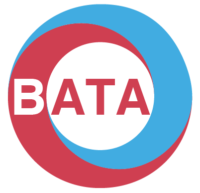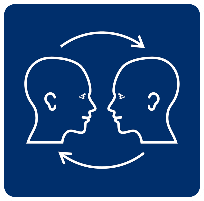- What is a stroke?
A stroke, or cerebrovascular accident (CVA), is a sudden rupture or obstruction in a blood vessel of the brain. If it is caused by a rupture it is called a haemorrhagic stroke, and if it is caused by an obstruction it is called an ischaemic stroke. In both cases the brain loses its vital blood supply. This causes symptoms such as numbness or weakness on one side of the body, slurred speech, difficulty understanding speech and blurred vision. A stroke that causes such symptoms temporarily is called a transient ischaemic attack (TIA).
- How can it affect speech?
A stroke can cause speech and language difficulties during the attack and lasting impairments afterwards. Some people may experience a communication difficulty called aphasia. This is a language impairment that affects how you understand and produce language.
Another problem that can occur after a stroke is dysarthria – muscle weakness in the mouth, throat and lungs, making it harder to produce speech sounds. People with dysarthria often have slurred or weak speech.
Acquired dyspraxia is a result of neurological damage to the brain during a stroke. This movement difficulty does not involve the muscles being weakened, a sensory loss or difficulty understanding the instruction; rather it is the neurological damage that blocks communication between the brain and the muscles required for speech.
- What is aphasia?
Aphasia is an acquired disorder that affects how a person understands and formulates language. It results from brain injury, commonly after a stroke but also after a head injury, TBI (traumatic brain injury) or encephalitis.
There are two kinds of aphasia: fluent aphasia (also called Wernicke’s aphasia) and non-fluent aphasia (Broca’s aphasia). People with fluent aphasia can usually produce different kinds of words, but their speech may not make sense. They may also have difficulty understanding what is said to them. People with non-fluent aphasia can usually produce speech that makes sense, but generally only a few words at a time and often without grammar. They find it difficult to speak long phrases or sentences. They can usually understand what is said to them.
Many people with aphasia have some difficulty both understanding and producing language. People with acquired aphasia may also have difficulties with numbers and maths, music or the ability to control their emotions.
Some people with aphasia may find an AAC system helps them to plan and produce what they want to say. This may be picture or word-based.
- Where can I find out more information?
The Stroke Association provides information and support for people who have had a stroke and their carers. It also operates two helplines.
See also
- FAQs – AAC and Autism Spectrum Disorder (ASD)
- FAQs – AAC and cerebral palsy (CP)
- FAQs – AAC and developmental difficulties
- FAQs – AAC and employment
- FAQs – AAC and general paediatric care
- FAQs – AAC and hospitalisation
- FAQs – AAC and locked-in syndrome
- FAQs – AAC and Parkinson’s Disease (PD)
- FAQs – AAC and stroke and aphasia
- FAQs – AAC and training
- FAQs – AAC assessment and clinical decision-making
- FAQs – the law, policy and services






